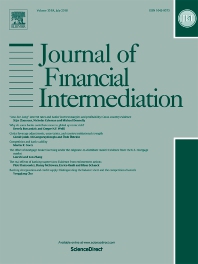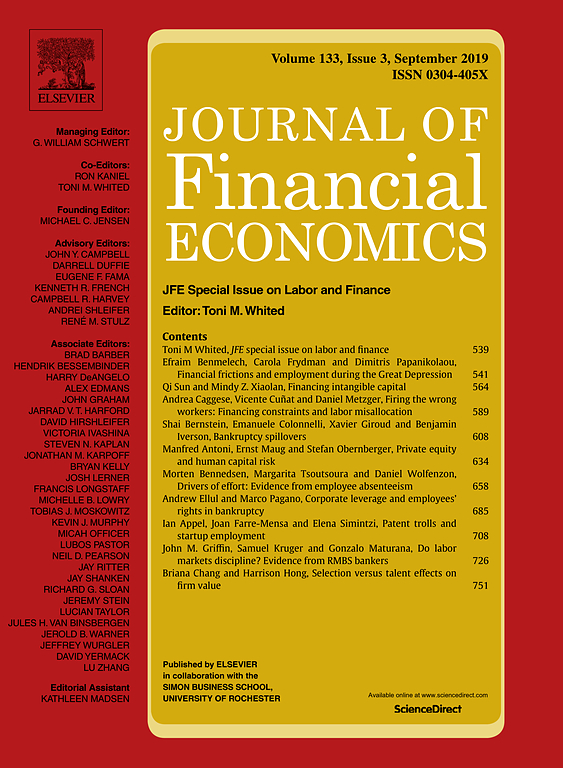Anpassungsfähigkeit und Resilienz des Finanzsystems
Diese Forschungsgruppe untersucht kritische Aspekte der Anpassungsfähigkeit und Widerstandsfähigkeit von Finanzsystemen. Sie analysiert die Auswirkungen von Naturkatastrophen auf Finanzsysteme, die Auswirkungen politischer Präferenzen für die grüne Transformation und die Bedeutung von Kultur in den Volkswirtschaften.
Forschungscluster
Finanzresilienz und RegulierungIhr Kontakt

- Abteilung Finanzmärkte
PROJEKTE
08.2022 ‐ 07.2025
OVERHANG: Schuldenüberhang und grüne Investitionen – die Rolle von Banken für den klimafreundlichen Umgang mit emissionsintensiven Anlagenvermögen
Bundesministerium für Bildung und Forschung (BMBF)
Ziel von OVERHANG ist es, die Rolle von Banken für den klimafreundlichen Umgang mit emissionsintensiven Anlagevermögen zu untersuchen. Hierdurch sollen politikrelevante Erkenntnisse zu Finanzregulierung, staatlich kontrollierter Kreditvergabe und Finanzstabilität identifiziert sowie eine Sensibilisierung der verschuldeten Akteurinnen und Akteuren erreicht werden.
Das Projekt wird vom Bundesministerium für Bildung und Forschung (BMBF) finanziert.
01.2015 ‐ 12.2019
Interactions between Bank-specific Risk and Macroeconomic Performance
Deutsche Forschungsgemeinschaft (DFG)
07.2016 ‐ 12.2018
Relationship Lenders and Unorthodox Monetary Policy: Investment, Employment, and Resource Reallocation Effects
Leibniz-Gemeinschaft
We combine a number of unique and proprietary data sources to measure the impact of relationship lenders and unconventional monetary policy during and after the European sovereign debt crisis on the real economy. Establishing systematic links between different research data centers (Forschungsdatenzentren, FDZ) and central banks with detailed micro-level information on both financial and real activity is the stand-alone proposition of our proposal. The main objective is to permit the identification of causal effects, or their absence, regarding which policies were conducive to mitigate financial shocks and stimulate real economic activities, such as employment, investment, or the closure of plants.
Referierte Publikationen

Borrowers Under Water! Rare Disasters, Regional Banks, and Recovery Lending
in: Journal of Financial Intermediation, July 2020
Abstract
We show that local banks provide corporate recovery lending to firms affected by adverse regional macro shocks. Banks that reside in counties unaffected by the natural disaster that we specify as macro shock increase lending to firms inside affected counties by 3%. Firms domiciled in flooded counties, in turn, increase corporate borrowing by 16% if they are connected to banks in unaffected counties. We find no indication that recovery lending entails excessive risk-taking or rent-seeking. However, within the group of shock-exposed banks, those without access to geographically more diversified interbank markets exhibit more credit risk and less equity capital.

Cross-country Evidence on the Relationship between Regulations and the Development of the Life Insurance Sector
in: Economic Modelling, July 2020
Abstract
Using a global sample, this study sketches the impact of insurance regulations on the life insurance sector, revealing a significant negative association between supervisory control on policy conditions of life annuities as well as pension products and the development of the industry. A similar inverse relation is observed between the index of capital requirements and insurance development. These results hold when we control for demographic factors, economic factors, religious inclination, culture, as well as for other relevant regulations. We also find some evidence that while the overall supervisory power does not matter, the ability to intervene at an early stage could have a positive effect on insurance development. Additionally, the impact of some regulations appears to differ between advanced and developing countries.

Credit Allocation when Borrowers are Economically Linked: An Empirical Analysis of Bank Loans to Corporate Customers
in: Journal of Corporate Finance, June 2020
Abstract
Using detailed loan level data, we examine bank lending to corporate customers relying on principal suppliers. Customers experience larger loan spreads, higher intensity of covenants and greater likelihood of requiring collateral when they depend more on the principal supplier for inputs. The positive association between the customer’s loan spread and its dependence on the principal supplier is less pronounced when the bank has a prior loan outstanding with the principal supplier, and when the bank has higher market share in the industry. Longer relationships between the customer and its principal supplier, and between the bank and the principal supplier, mitigate lending constraints. The evidence is consistent with corporate suppliers serving as an informational bridge between the lender and the customer.

Democracy and Credit
in: Journal of Financial Economics, Nr. 2, 2020
Abstract
Does democratization reduce the cost of credit? Using global syndicated loan data from 1984 to 2014, we find that democratization has a sizable negative effect on loan spreads: a 1-point increase in the zero-to-ten Polity IV index of democracy shaves at least 19 basis points off spreads, but likely more. Reversals to autocracy hike spreads more strongly. Our findings are robust to the comprehensive inclusion of relevant controls, to the instrumentation with regional waves of democratization, and to a battery of other sensitivity tests. We thus highlight the lower cost of loans as one relevant mechanism through which democratization can affect economic development.

Bank Accounting Regulations, Enforcement Mechanisms, and Financial Statement Informativeness: Cross-country Evidence
in: Accounting and Business Research, Nr. 3, 2020
Abstract
We construct measures of accounting regulations and enforcement mechanisms that are specific to a country's banking industry. Using a sample of major banks in 37 economies, we find that the informativeness of banks’ financial statements, measured by the value relevance of earnings and common equity, is higher in countries with stricter bank accounting regulations and countries with stronger enforcement. These findings suggest that superior bank accounting and enforcement mechanisms enhance the informativeness of banks’ financial statements. In addition, we find that the effects of bank accounting regulations are more pronounced in countries with stronger enforcement in the banking industry, suggesting that enforcement is complementary to bank accounting regulations in achieving higher value relevance of financial statements. Our study has important policy implications for bank regulators.
Arbeitspapiere

Corporate Governance Structures and Financial Constraints in Multinational Enterprises – An Analysis in Selected European Transition Economies on the Basis of the IWH FDI Micro Database 2013 –
in: IWH Discussion Papers, Nr. 3, 2015
Abstract
In our analysis, we consider the distribution of decision power over financing and investment between MNEs’ headquarters and foreign subsidiaries and its influence on the foreign affiliates’ financial restrictions. Our research results show that headquarters of multinational enterprises have not (yet) moved much decision power to their foreign subsidiaries at all. We use data from the IWH FDI Micro Database which contains information on corporate governance structures and financial restrictions of 609 enterprises with a foreign investor in Hungary, Poland, the Czech Republic, Slovakia, Romania and East Germany. We match data from Bureau van Dijk’s AMADEUS database on financial characteristics. We find that a high concentration of decision power within the MNE’s headquarter implicates high financial restrictions within the subsidiary. Square term results show, however, that the effect of financial constraints within the subsidiary decreases and finally turns insignificant when decision power moves from headquarter to subsidiary. Thus, economic policy should encourage foreign investors in the case of foreign acquisition of local enterprises to leave decision power within the enterprise and in the case of Greenfield investment to provide the newly established subsidiaries with as much power over corporate governance structures as possible.



















